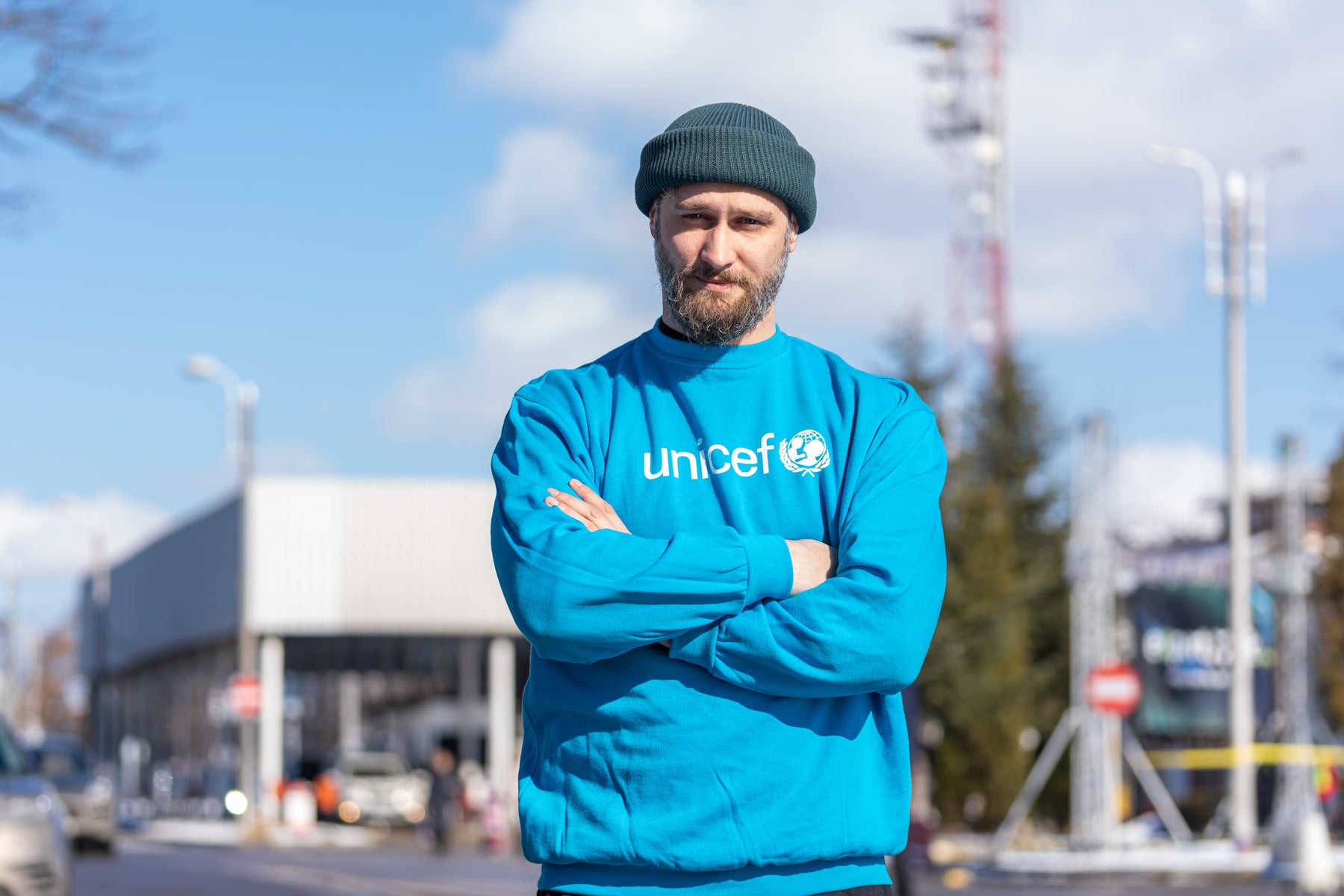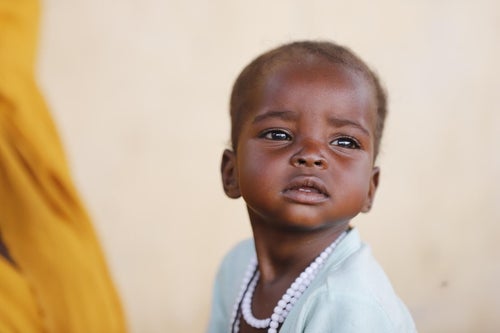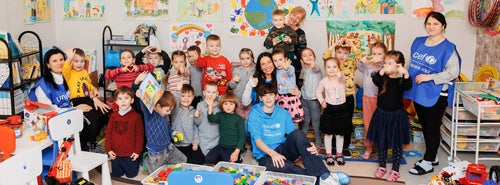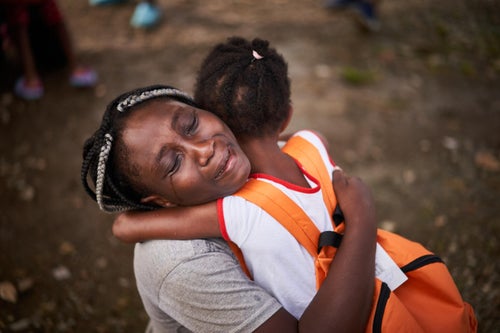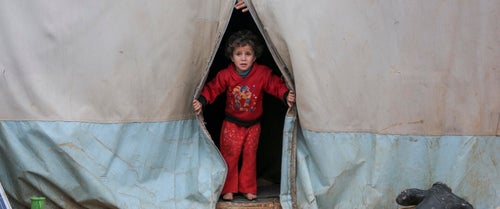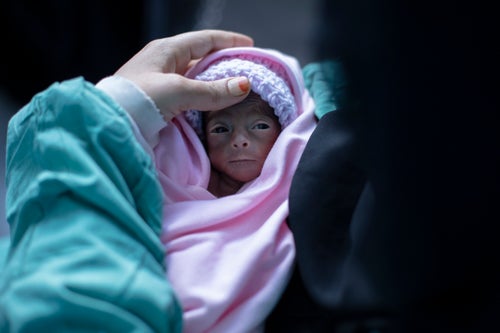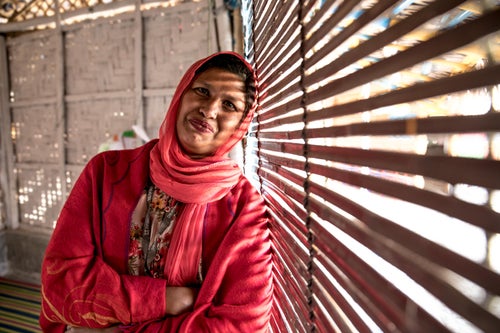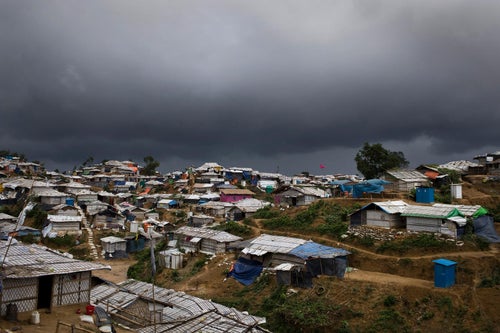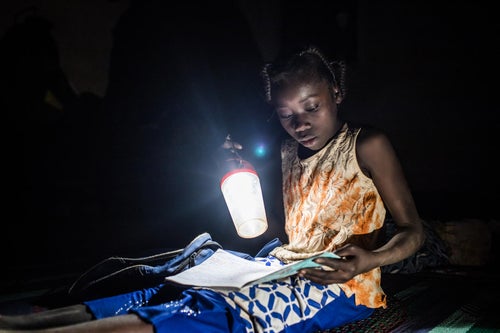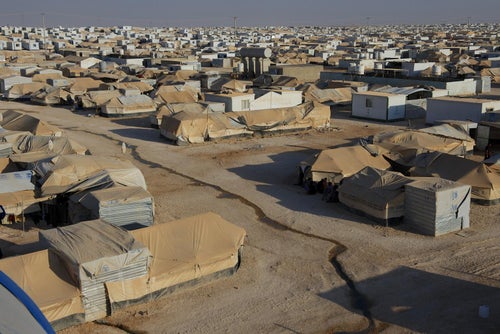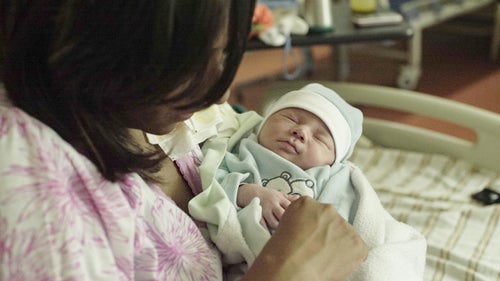Every day through the war in Ukraine, there have been everyday heroes and local legends refusing to give up on children.
Doctors who’ve turned into cooks and carers for new mothers. Brave people spending their days delivering box after box of supplies that will save lives. Thousands volunteering at borders to make sure families are safe and welcomed.
We won’t let their stories go untold.
From the office to the border crossing
A month ago, Sorin’s job was to talk to the public about what UNICEF does for children in conflict and disaster zones. But when thousands of Ukrainian refugee children began rushing into Romania for safety, he found himself directly on the frontline of that work.
Sorin drove for eight hours to reach the border with the goal to tell the story of Ukrainians on the move. But that job would change. Sorin took over the coordination of a ‘Blue Dot’ hub in Siret, Romania, one of the biggest border crossings in the country.
A Blue Dot support hub provides a safe, welcoming space to rest, play and simply be a child. UNICEF and partners have set up these critical safe spaces along borders in neighbouring countries for children and families fleeing Ukraine.
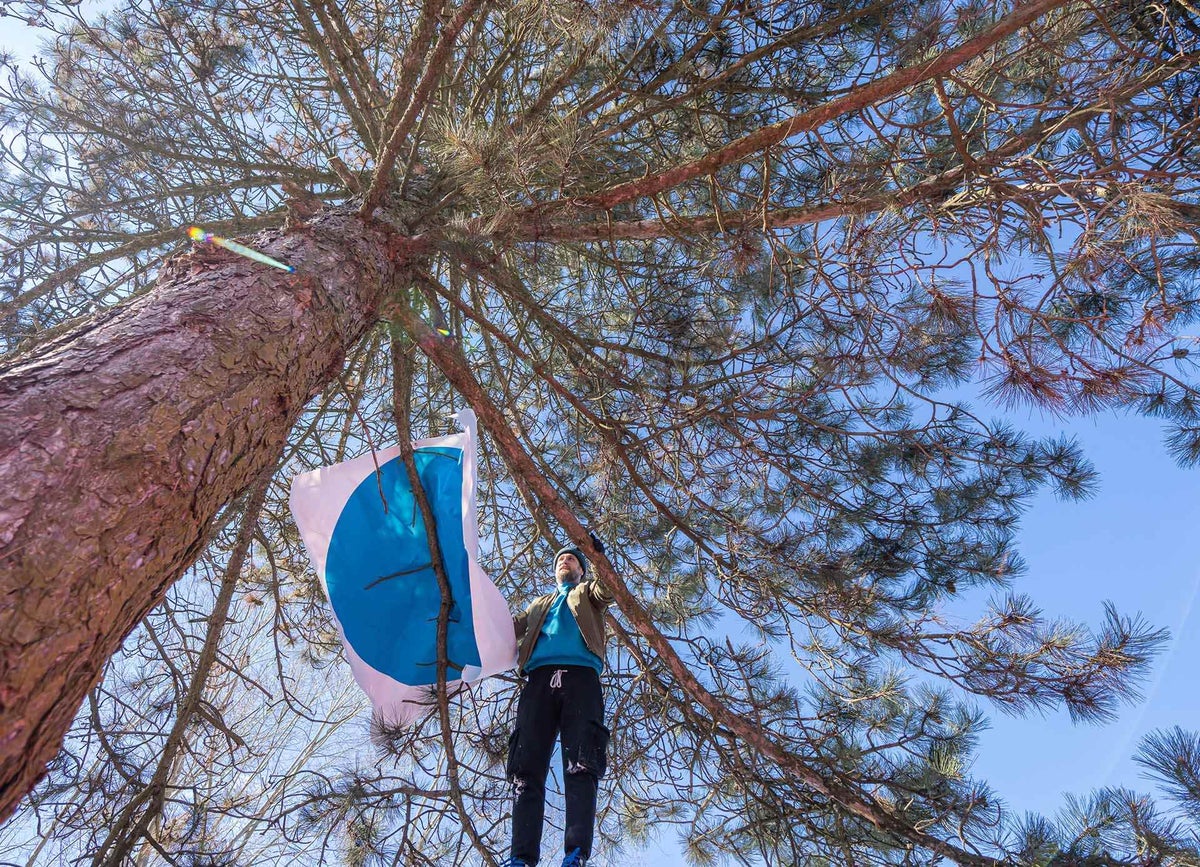
“There are kids that saw artillery, there are kids who saw bombs, they’re shocked, they don’t really talk," says Sorin.
“It takes them a really long time to get comfortable in a warm place, and the only thing that I saw that gets them talking or more relaxed is meeting friends or other kids that they know.”
As the Blue Dot coordinator, Sorin helps families move from one location to the next. He grabs a local SIM card for a mother, he finds the right local organisation to help another, he picks up the suitcases of another to help them into the warmth, he loads child tables into the playroom, he fields phone calls.
It’s a long way from his job as a Fundraising Coordinator, but as Sorin says “you make do with what you have.”
No matter what, no matter where, children must be protected.
Please help send life-saving supplies to children and families today. Donate to UNICEF Australia before June 30 and claim a deduction when submitting your tax return for this financial year.
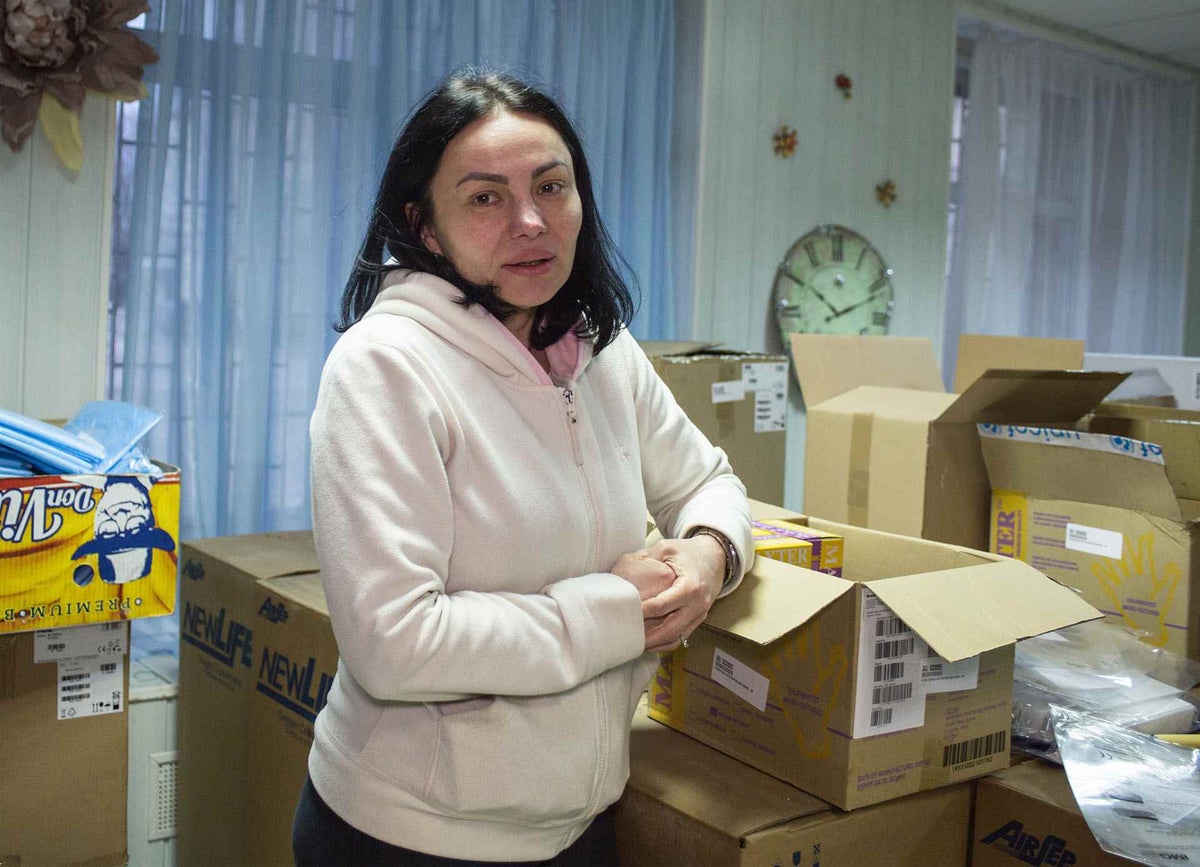
Jack of all trades
In the basement of this perinatal centre in Kyiv, Ukraine, staff are working under intense pressure. They deliver babies despite the shelling outside and often work without a stable power supply.
Some staff have already left with their families. As a result, Nataliya, the centre director, and her remaining colleagues have taken on multiple roles.
“I work as a cook, a regular doctor and a surgeon,” she says. “But it’s our responsibility to be here and make sure that the centre is operational.”
“It’s impossible to be prepared for this. It’s extremely cold and dark, and there are no power outlets down here.”
According to the World Health Organisation, there have been 100 attacks on health care centres since the start of the war on 24 February.
Oxygen and medical supplies used for the management of pregnancy complications, are running dangerously low.
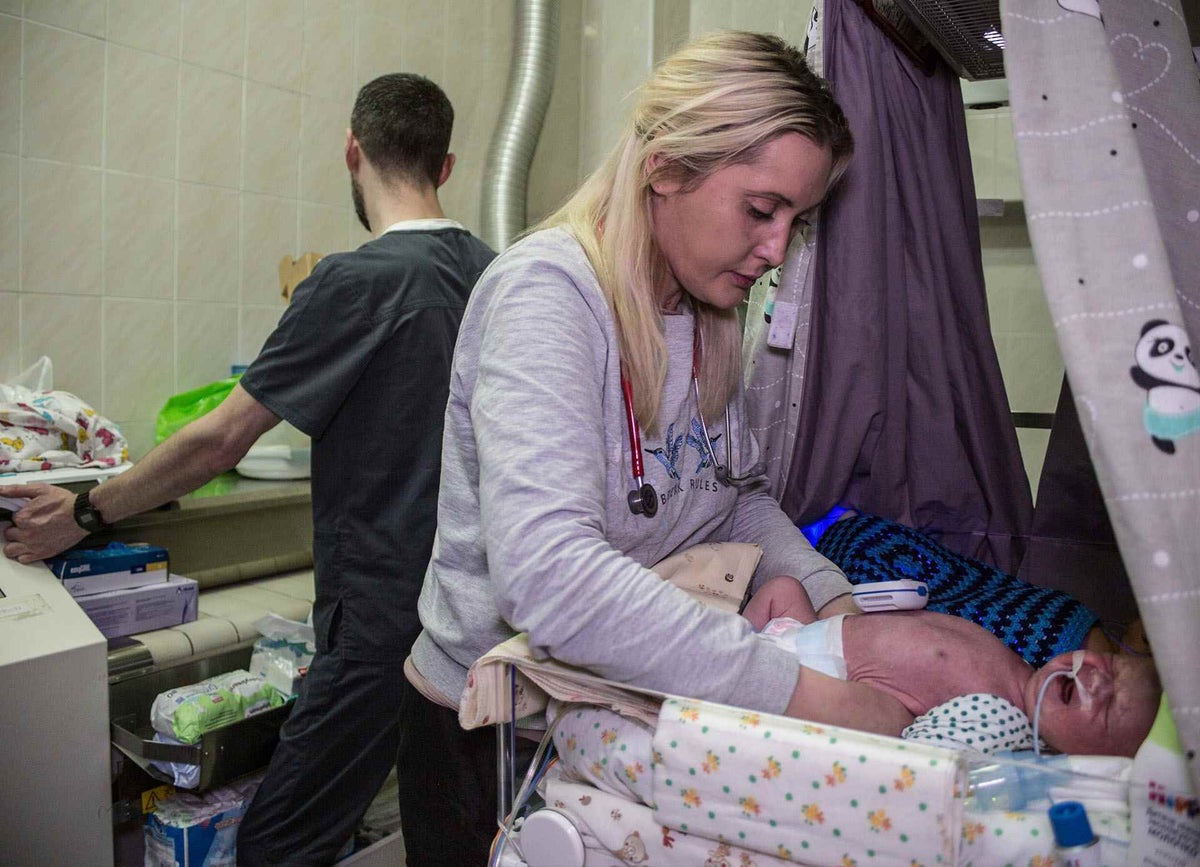
So far, our teams in Ukraine have reached more than 719,000 people with life-saving medical supplies, such as midwifery kits and essential medicines, in hospitals and maternity centres across the country.
“We’ve received oxygen concentrators, scales, protective gowns and gloves,” says Nataliya. “All of this will be used for women in labour, small children and premature babies who are currently under our care.”
We can’t stop the shelling or bring back a destroyed home but from right here in Australia, UNICEF donors are sending a lifeline to heroic health workers like Nataliya in Ukraine: tonnes and tonnes of medical supplies, surgical equipment, first aid kits and oxygen for the most vulnerable.
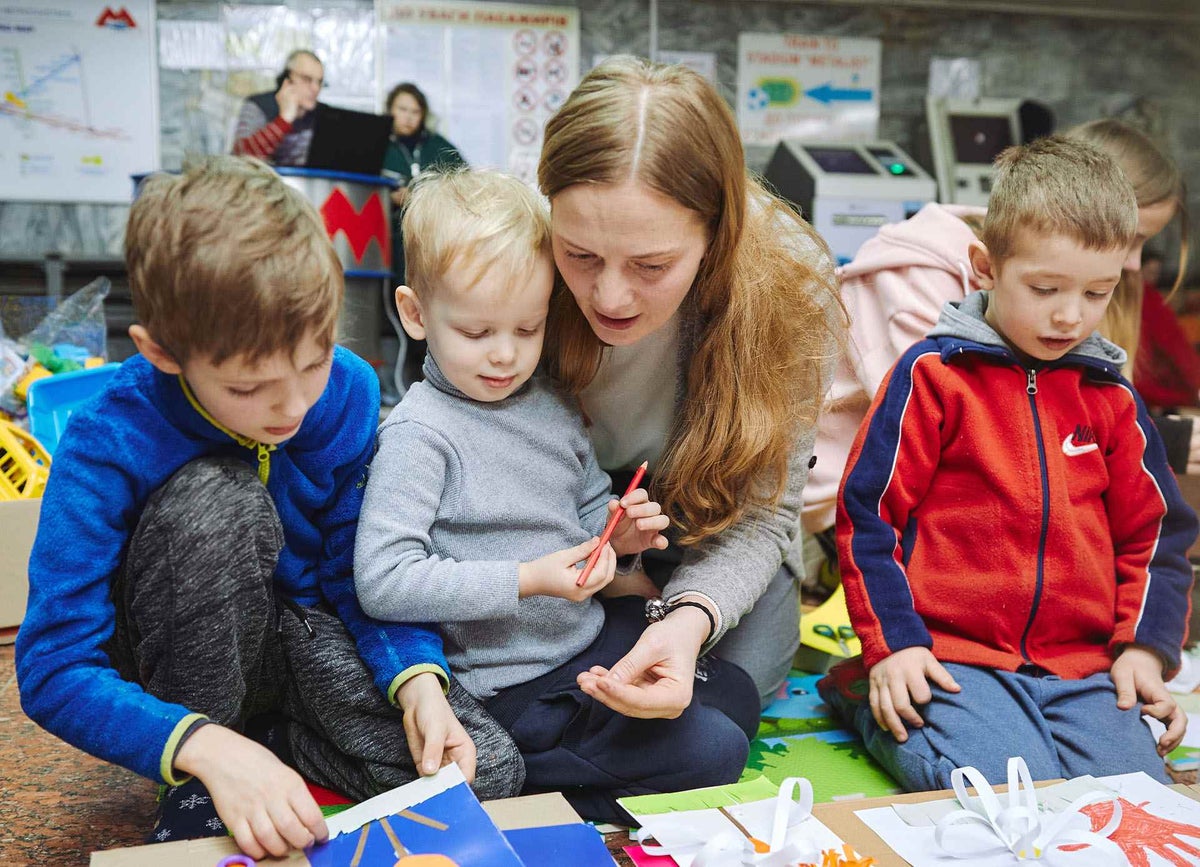
Learning underground
In Kharkiv, Ukraine’s second largest city, the metro no longer runs. Instead, families and children have found shelter on the platforms and in the train carriages, as the constant shell fire sounds above.
This is where Anastasia comes to work each morning. She volunteers at a support space set up by UNICEF in the metro station. Filled with learning materials for art, play and reading, it provides a safe space for children to just be children again.
“I just saw the volunteer recruitment and registered,” says Anastasiia, who has a 13-year-old daughter and teachers at a local university.
“Every morning I exercise with the children at the metro station. And during the day I hold workshops and play games with them.”
So far, more than 4,500 children and adolescents have participated in activities in Kharkiv’s metro stations. UNICEF plans to engage around 500 volunteers, educators and psychologists to support children and their families on the move.
Psychosocial support is just as important as basic needs such as water and health care to help children recover from trauma and lead successful lives into the future.
For the last 75 years, UNICEF has delivered for children in the world's worst and most urgent emergencies and crises and we’re not stopping now. Across Ukraine’s neighbouring countries, here’s what our supporters are helping us deliver for children and families:
💙 ‘Blue Dot’ safe places at borders to rest, play and escape the chaos of their long journey. To draw, sing and talk to other children.
✋ Someone to help deal with trauma. Someone to tell if you’ve lost your family. Someone to help you find them.
🚰 Supplies for those who’ve left everything behind: clean water and hygiene kits, nutrition supplies, baby food, diapers, warm clothes and blankets, cloths and pads to manage periods.
Related articles
Stay up-to-date on UNICEF's work in Australia and around the world



